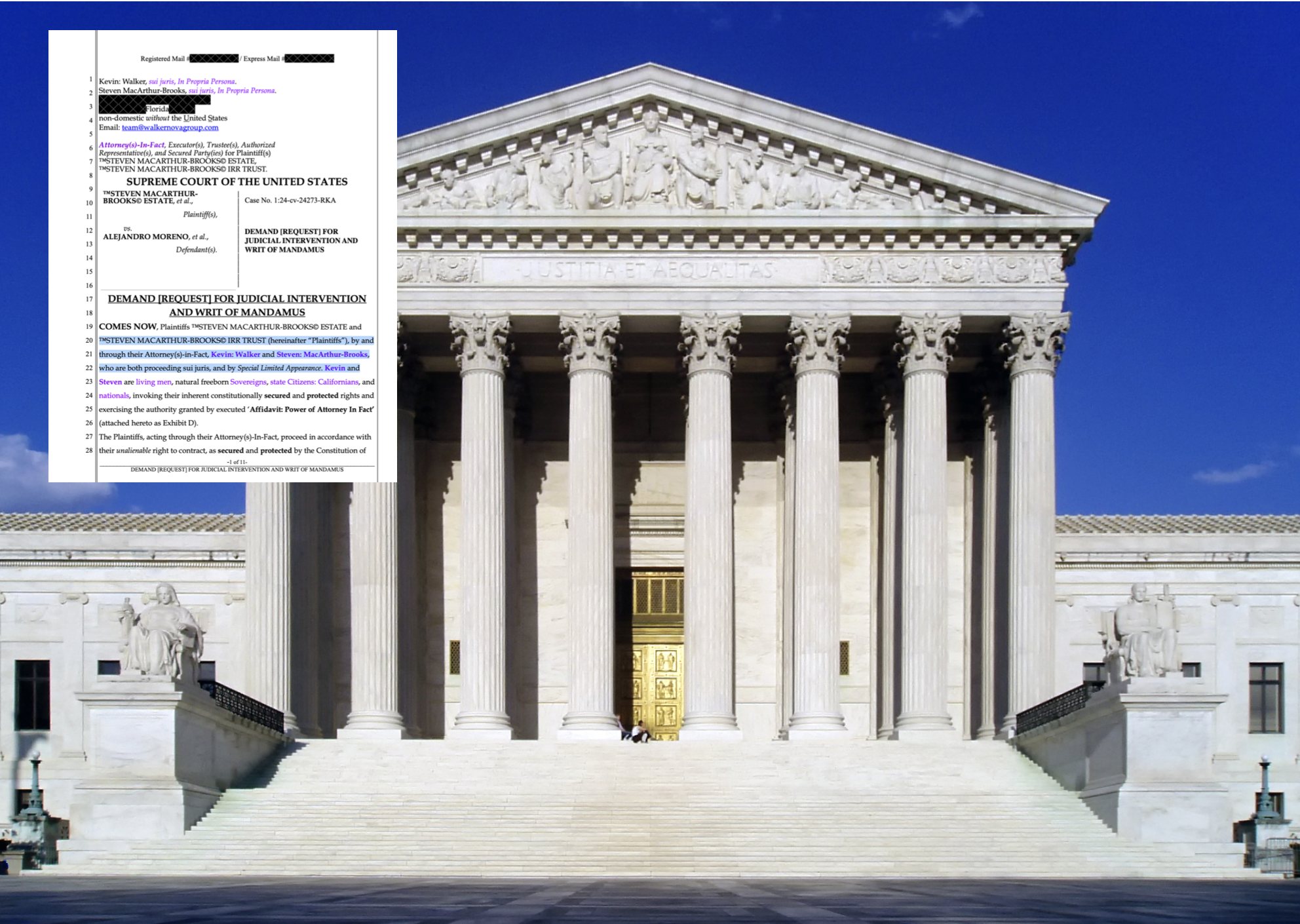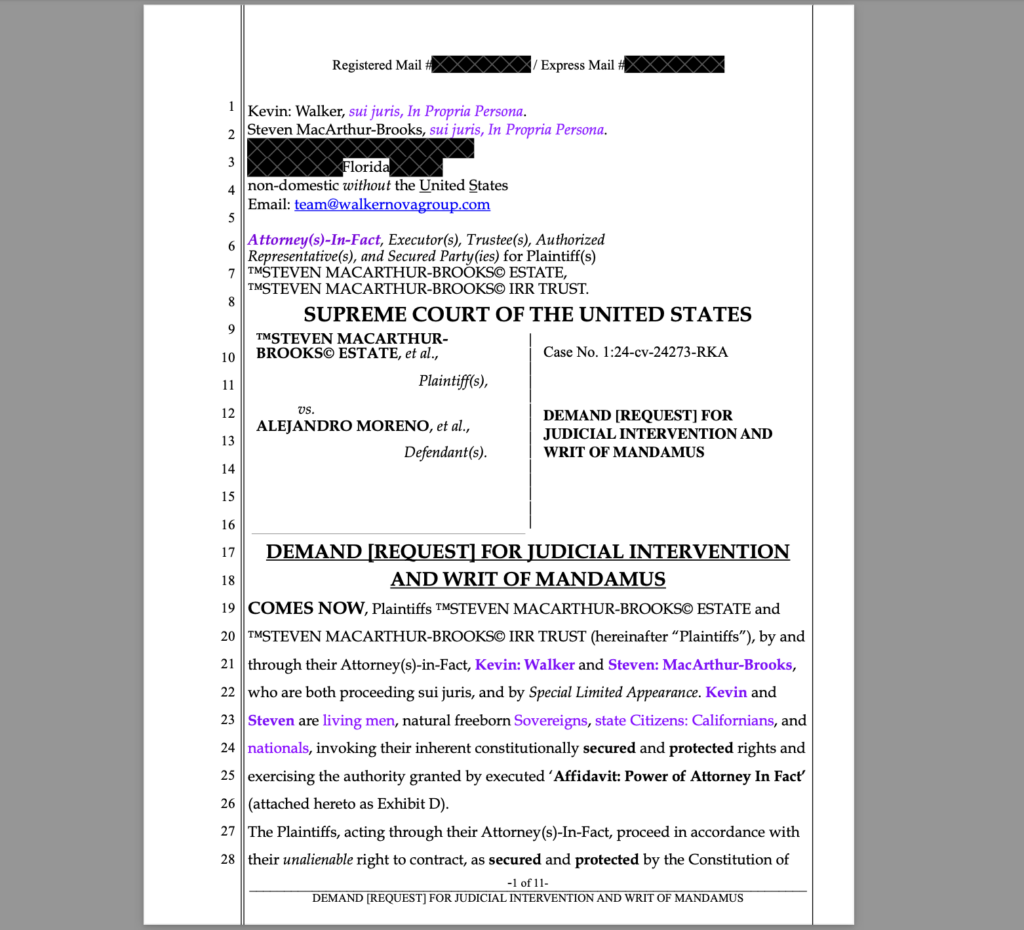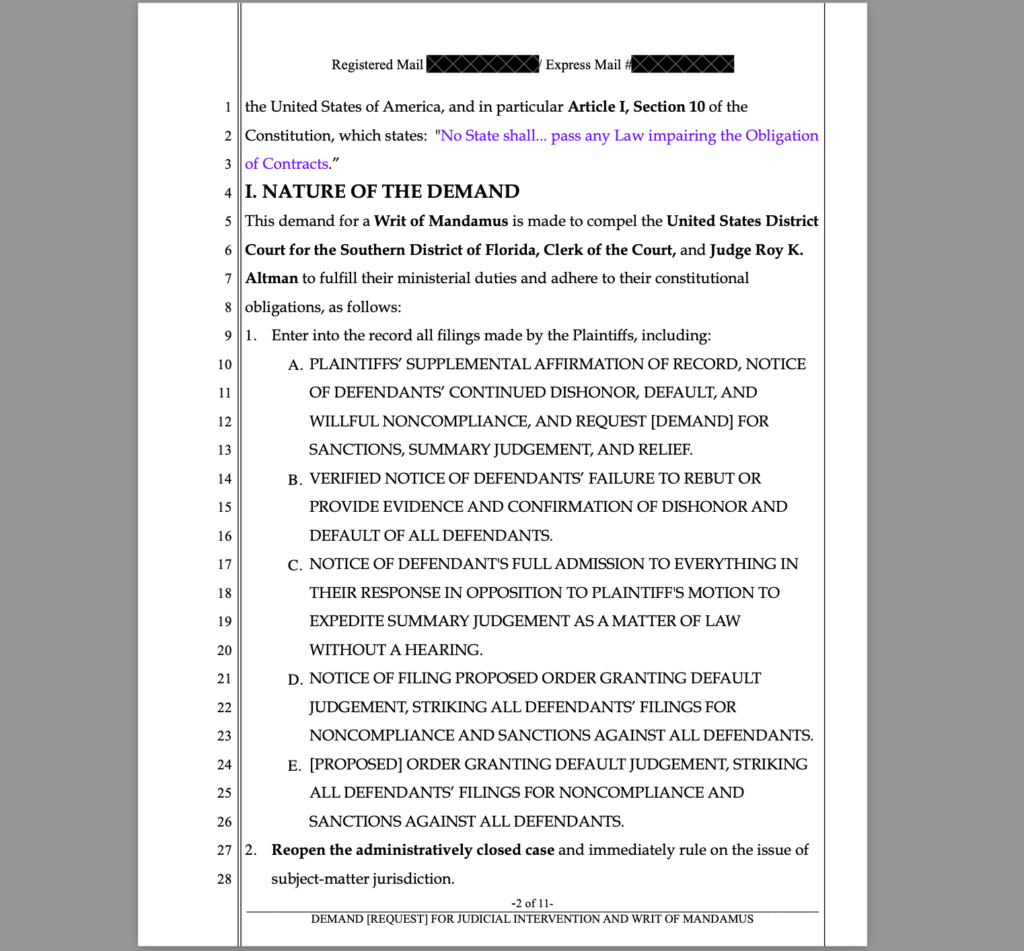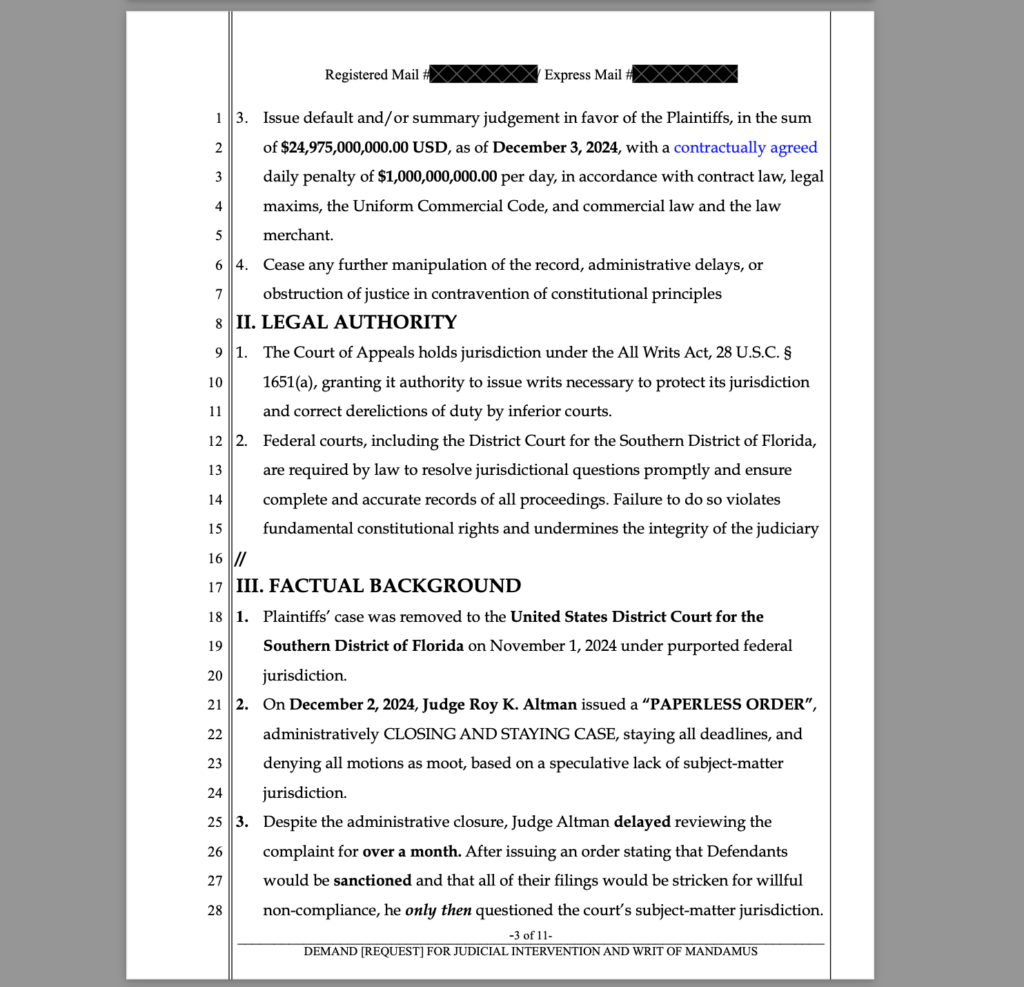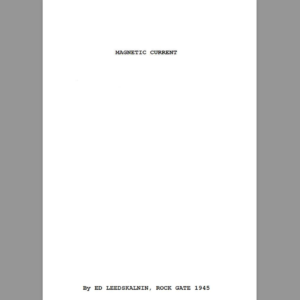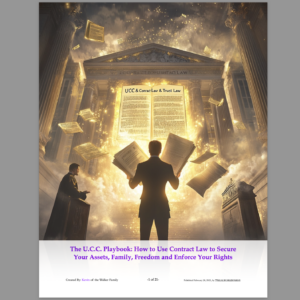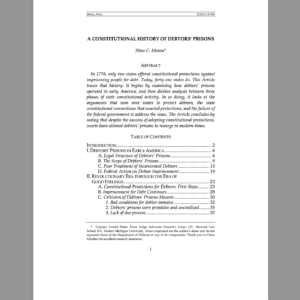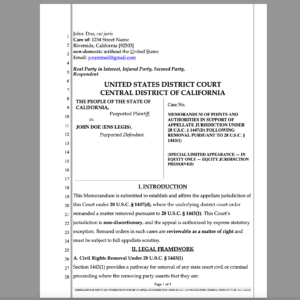In a case centered on allegations of breach of contract, fraud, dishonor, and related wrongs, plaintiffs ™STEVEN MACARTHUR-BROOKS© ESTATE and ™STEVEN MACARTHUR-BROOKS© IRR TRUST have demanded judicial intervention and mandamus relief with the Supreme Court of the United States. The plaintiffs assert that the federal district court’s administrative closure of their case due to doubts over subject matter jurisdiction leaves the Supreme Court as the only appropriate venue for resolving the matter.
Federal Court Closure: Jurisdictional Questions
The federal district court issued a Paperless Order Closing and Staying Case, stating:
“Our review of the [1-1] Removed Complaint strongly suggests that we lack subject-matter jurisdiction over this action. We therefore administratively CLOSE this case, DENY AS MOOT all motions, and STAY all deadlines pending our decision on the question of our subject-matter jurisdiction.”
This closure halted all proceedings, leaving the plaintiffs without resolution of their claims. The plaintiffs assert that the court’s actions effectively denied them due process and necessitated Supreme Court review.
Central Issue: Unrebutted Affidavits as Binding Judgments
At the heart of the plaintiffs’ case are three verified, unrebutted commercial affidavits (Exhibits E, F, and H) submitted with their initial Verified Complaint. These affidavits, which also function as self-executing Contract Security Agreements, are presented as conclusive evidence of the plaintiffs’ claims under principles of contract law and the Uniform Commercial Code (U.C.C.).
Plaintiffs’ Key Assertions
Affidavits Stand as Truth in Commerce: The affidavits were served in accordance with U.C.C. principles, and the defendants’ failure to rebut them constitutes tacit agreement. Under the maxim, “He who does not deny, admits,” the affidavits stand as binding truth in commerce.
No Genuine Dispute of Material Fact: Defendants’ silence amounts to acquiescence, leaving no genuine dispute of material fact. Legal maxims and doctrines such as res judicata, stare decisis, and collateral estoppel support the conclusion that the affidavits conclusively establish the plaintiffs’ entitlement to judgement.
Defendants’ Denial of Affidavits: The defendants called the affidavits “meritless” and “baseless,” thus effectively calling contract law itself “meritless” and “baseless.” These statements directly undermine the fundamental principles of contract law and dishonor the legal framework in which the affidavits were submitted.
Defendants in Default and Dishonor: The defendants are in default and dishonor, as evidenced by their failure to rebut the affidavits in a timely and legal manner. Under U.C.C. § 3-505, the defendants are presumed to be in dishonor due to their actions, which include failing to respond, contest, or dispute the claims within the required time frame. By this failure, the defendants have admitted to everything on the record and have no basis to challenge the authenticity or validity of the affidavits.
Judgement in Commerce: An unrebutted affidavit becomes the judgment in commerce. The defendants’ silence affirms their liability for damages and penalties totaling $13,975,000,000 as of November 26, 2024, with a daily penalty of $1,000,000,000 for non-compliance.
Finality of Findings: The unrebutted affidavits bind the defendants to the agreed facts and judgements, barring any contestation in subsequent proceedings. The incorporation of the affidavits into the record elevates them to binding legal agreements.
Sanctions and Striking of Defendants’ Filings
In a recent order, the judge declared that the defendants would be sanctioned for their conduct and that all of their filings would be struck from the record. This decision comes after the defendants’ persistent dishonor of the process and their failure to provide substantive rebuttals to the plaintiffs’ affidavits. The striking of the defendants’ filings reinforces the plaintiffs’ position that the case has been effectively settled by the unrebutted affidavits.
Supreme Court Petition: Extraordinary Relief
The plaintiffs have demanded a writ of mandamus from the Supreme Court to compel action on their case, which has been effectively stalled due to the federal court’s administrative closure. The unresolved jurisdictional questions in the lower court deprive the plaintiffs of a proper forum to adjudicate their claims.
The plaintiffs frame their case as one of constitutional importance, highlighting systemic failures in the judicial process and the necessity of adhering to contract law and U.C.C. principles. They contend that the court’s administrative closure denies their fundamental right to due process, making Supreme Court intervention critical to preserving judicial integrity and accountability.
Conclusion: A Demand for Judicial Accountability
The plaintiffs’ case presents significant legal questions about the role of unrebutted affidavits in judicial proceedings, the finality of commercial agreements, and the implications of jurisdictional uncertainty. By petitioning the Supreme Court, they seek a ruling that not only addresses their specific claims but also reaffirms the principles of contract law and due process.
As the matter unfolds, it underscores the importance of clarity in jurisdictional authority and the binding nature of unrebutted affidavits in commercial and judicial contexts. The outcome could have far-reaching implications for the enforcement of contractual obligations and the resolution of jurisdictional disputes.
